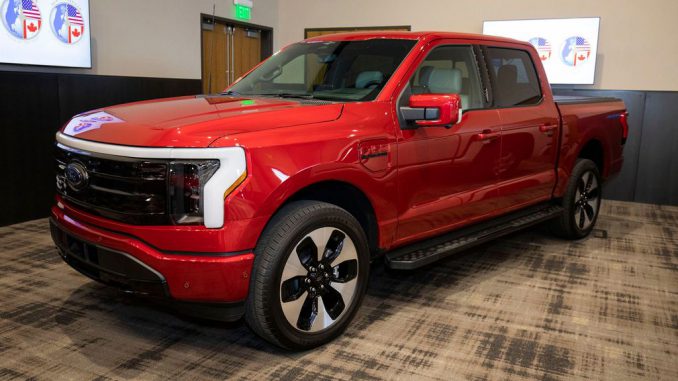
By Chris Katje
The U.S. is among the countries that have seen an increase in new electric vehicle (EV) sales.
A recent poll posted on Twitter asked what the future could look like for this burgeoning sector.

The anonymous Twitter account, known as CarDealershipGuy (@GuyDealership), asked his more than 375,000 followers what the future of America looks like.
“The year is 2030, what % of new cars sold in the US are electric vehicles,” CarDealershipGuy asked. The results were:
- Less than 15%: 25.4%
- 15% to 30%: 25.5%
- 30% to 50%: 20.9%
- More than 50%: 28.1%
The poll saw over 108,000 votes, with the leading answer being a market share of over 50%. Ultimately, 49% of people polled see EVs hitting market share of 30% or more in the year 2030.
The poll also showed that 74.5% of people think EV market share will be over 15% in 2030.
CarDealershipGuy added in the comments that the current EV market share for new vehicles in the U.S. is between 7% and 8%.
In 2022, electric vehicles made up 13% of new vehicle sales around the world according to a report.

In Europe, the market share for electric vehicles included 22.6% for hybrid vehicles, 9.4% for plug-in hybrids, and 12.1% for battery powered EVs.
Benzinga previously reported that plug-in vehicles had a market share of around 30% in China in late 2022. Battery powered electric vehicles had a market share of around 22% of new vehicles in China in late 2022.
The U.S. ranked behind other markets with 5.8% of all new vehicles sold in 2022 being listed as electric vehicles. While this was up from 3.1% in 2021, it still lags behind other markets.
While the results of the poll only rely on the opinions of people on social media and may not indicate who will actually buy electric vehicles, it could be good news for companies like Tesla Inc (NASDAQ: TSLA), and others like Ford Motor Company (NYSE: F), and General Motors Company (NYSE: GM) making the switch to EVs.
States like Washington and Massachusetts also announced plans to follow California in banning gasoline powered vehicles from the new car market in the future.
One potential issue could be demand for EVs from now until 2030. Axios reports market share of 6.5% for EVs in 2023 year-to-date, and that inventory has increased at dealerships, with supply now passing demand.
A forecast from Cox Automotive says that EVs could pass one million units in the U.S. for the first time in 2023. Tesla, alone, aims to deliver 1.8 million vehicles in 2023.
A survey from Cox showing that 51% of consumers are willing to purchase a new or used EV was up from 38% on the same question in 2021. The survey could indicate the results from the CarDealershipGuy poll are coming as more people in America are ready to purchase an electric vehicle in the future.
Supply of EVs stands at 92,000 units, which is said to be twice the industry average and represents around three months of supply.
For market share to increase in the U.S., supply and demand may both need to go up, something that will be a delicate balancing act for automakers.
Produced in association with Benzinga
Edited by Alberto Arellano and Kyana Jeanin Rubinfeld
